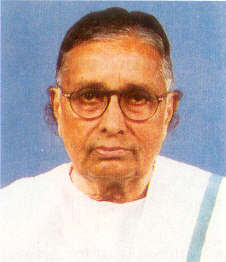Mohan alias Chotu, a 15-year-old boy leaves home every morning like any other child of his age. He carries a lunch box and is rushing to make it in time; he fears punishment. Slightly less than 5 ft, Chotu in his half-pants and a pale sleeveless shirt – which fails to hide his malnourished structure – pauses before a school and then restarts for his destination, a bangle factory.
The rest stays inside the tall doors. Time and again, experts have debated the ‘key focus areas’ in order to eradicate child labour. Many state that poor economic conditions have led to a rational family strategy to send children to work and as their income increased, child labour decreased. But a contrasting explanation comes from Myron Weiner. He figures out in his study, ‘The Child and the State in India: Child Labor and Education Policy in Comparative Perspective’, that the answer lies in making primary education compulsory.
However, the unpleasant truth in India and many parts of the globe is that poverty, economic backwardness and illiteracy have robbed millions of children of their ‘basic rights’ that includes the right to education. India, though, has implemented the Right to Education Act, which provides for free and compulsory education, the bigger challenge remains to motivate children – who are already contributing to their family’s income – to pursue studies and excel. Thus, child labour negatively impacts their learning and future prospects. Besides, such children are frequent victims of maltreatment, physical and psychological abuse by their supervisors and even their family members.
Traditionally increase in child labour has been attributed to industrialisation, but this adverse practice has been there during pre-indutrialisation period too. However, it was only much later that it began to be linked with exploitation. Click here to read more...
Like us and read IIPM Think-Tank articles on facebook



 Sanborn has authored eight books and nearly two dozen audio and video training programs including the bestselling books ‘The Fred Factor’, ‘You Don’t Need a Title to be a Leader’ and ‘The Encore Effect’. In 2007, Sanborn was awarded the Ambassador of Free Enterprise Award by Sales & Marketing Executives International.
Sanborn has authored eight books and nearly two dozen audio and video training programs including the bestselling books ‘The Fred Factor’, ‘You Don’t Need a Title to be a Leader’ and ‘The Encore Effect’. In 2007, Sanborn was awarded the Ambassador of Free Enterprise Award by Sales & Marketing Executives International.














